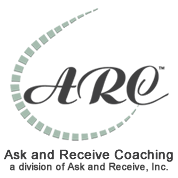Identify and Address Your Concerns

Many years ago, I learned the value of identifying things that were bothersome and quickly taking action to remedy as much as possible. For example, that favorite sweater that you reach for repeatedly and once in your hands, you remember that a button has fallen off – gift yourself a moment to sew the button back on and enjoy that sweater.
In today’s world, our concerns often consume more energy than sewing on a button, but when we identify concerns, we can become empowered to improve situations.
Like you, I have many concerns. Taking the time to identify concerns brings them to my consciousness, which motivates me to do what I can to lessen them. As we start this New Year, I hope that we are acting individually and collectively to lessen concerns.
Last year about this time, I wrote about my response to the question, “What issue for today’s working women is of most concern to you?”
I realized that I had lots of concerns, and they certainly were not just limited to women. Identifying those concerns, writing my responses, and taking action throughout the year had a significant impact on improving my daily life.
For the response I wrote:
We live with the belief that self-sacrifice is more honorable than self-care. We have forgotten how to say, “No.” to yet another request. We fill our schedules so tight that we no longer have time for dreaming, playing, laughing, and passion. I am concerned that we have forgotten that we are human “beings” and have instead become human “doings.” We may know that we can’t manage time, but we have forgotten the importance of managing our commitments.
That concern wasn’t just for others; it also applied to me. Over the past year, I practiced more self-care than ever before. I identified what brings me peace and joy and made a commitment to make space for more of that in my life, and I learned to say no. I rested and made a conscious effort to create more free time. The result was reduced anxiety and wonderful memory-making moments.
I wrote:
I am concerned that we hide not only our pain and fear but also our joys. We are more afraid of our potential then we are our failure. We diminish our light, fearful of shining too brightly. We silence the voice that whispers of our greatness. We settle.
After writing that, I committed to being more open to sharing my pains and joys. I asked deeper questions and created opportunities to explore with my friends what matters most to us. I became more proactive in encouraging others to follow their bliss. It is a process, but with daily steps, we can live our dreams and shine more brightly. My word for 2020 is Shine. What is your word? What word will motivate you each day to become your best you?
I wrote:
I am concerned that we don’t ask for help. People want to help. We often don’t know how to help until asked. Being asked for help makes us feel valuable – part of something beyond ourselves.
I learned this year that there was folly in my statement above. I understand now that it isn’t always about not wanting to ask for help but simply being in a place where we don’t even know what help we need. I started asking, how can I love you best instead of how can I help? It is often helpful to offer up suggestions such as a meal, helping with laundry, yard work, or other ways you may be able to help.
When we identify concerns and use our powers for good, we can make our world a better place. I love the OAR Model learned at Newfield Network: We can change the Observer we are, new Actions become clear, and Results improve. Remember what Einstein said about solving problems. “We can’t solve problems by using the same kind of thinking we used when we created them.”
I have joy in knowing that while our concerns are significant, where there is breath, there is hope.
Best wishes for a year filled with joy!
Stacey
Stacey@AskandReceiveCoaching.com
www.AskandReceiveCoaching.com
864-414-3598
